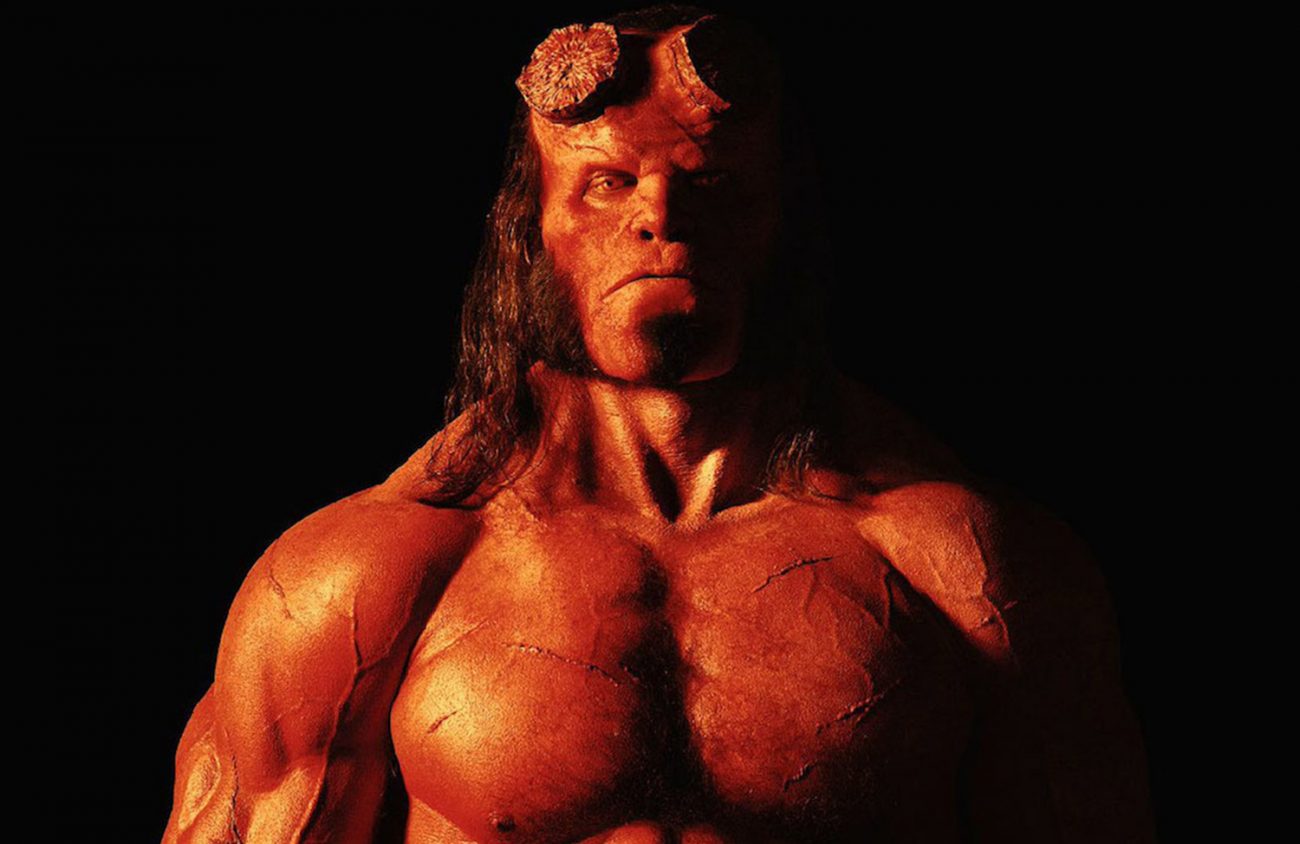If there’s a single lesson to be taken from Neil Marshall’s Hellboy reboot, it’s that it’s ungodly hard to follow in the footsteps of Guillermo del Toro. While the pacing of 2004’s Hellboy seems nigh-on glacial in our current age, and 2011’s Hellboy II: The Golden Army was more style than substance, both have their charms: Doug Jones’ character of Abe Sapien; Ron Perlman’s affectionate grumble; and, powerfully, del Toro’s inventive imagery.
Marshall, though, is best as a TV director, working within the structure set by a showrunner (he’s directed episodes of Game of Thrones and Black Sails, among others). He isn’t inventive; his love for purplish gore is a stylistic hallmark, but a predictable one. When a small, harmless creature appeared briefly onscreen, I threw up my hands, knowing exactly what was coming: death by something bigger.
When a gate to Hell opens, brace yourself for the ripped-out spines and spurts of viscera.
Did we need an R-rated Hellboy just so there might be more blood? It’s been 11 years since the last cinematic incarnation of Mike Mignola’s candy-and-kittens-loving comic book character, which is much more time than passed between Spider-Man 3 (the last with Tobey Maguire) and The Amazing Spider-Man (the first with Andrew Garfield). It’s understandable that someone wanted to get back in on the continuing superhero movie boom — and with Hellboy already introduced, there’s no need for yet another origin story.
But Hellboy wants to have it both ways, to cover familiar ground and present a new story, and it fails at both. It flashes back to Hellboy’s origin again, primarily to set up a toothless daddy-issues narrative (wasting Ian McShane like this is its own crime). In the present timeline, it borrows from the comics’ “Wild Hunt” series for a series of events nominally about the fate of the world, and what kind of creature Hellboy is at heart.
This Hellboy is a basketful of references in search of a compelling thought. Among other things, it ropes in Baba Yaga, changelings, giants, an Arthurian legend and the suggestion that there is another world of beings that might like this planet for their own.
It should be mythic, yet it’s anything but. The uniformly grotesque creatures look like rejects from Middle-Earth’s central casting; they scream and pout, tower and glare, but have as much differentiation as a horde of digitally created orcs. The Queen of Blood (Milla Jovovich) wants to destroy the world, but is also apparently in need of a man.
As David Harbour (Stranger Things) struggles to put his own spin on this iconic character, the movie as a whole does the same. It fails to develop its own identity outside of a bloodier yet blander version of the world established by del Toro. In the last few minutes, Marshall suddenly musters up new energy, sending his main characters into a punchy final scene set to the manic strains of Mötley Crüe’s “Kickstart My Heart.” For a brief second, this Hellboy isn’t just its own beast — it’s fun. But it’s also the very definition of too little, too late.
